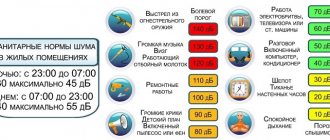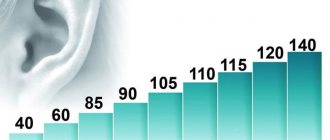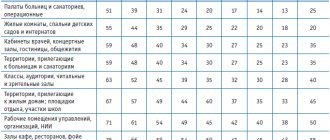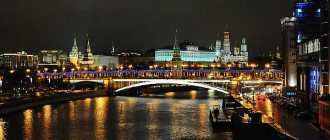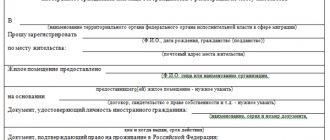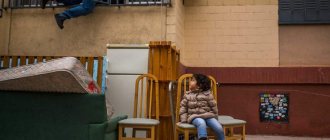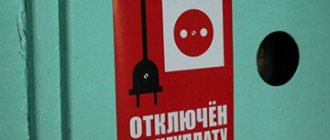Home / Housing / Neighborhood
Back
Published: 12/25/2021
Reading time: 9 min
0
610
Any sounds and vibrations in the air caused by air vibrations affect the body. Conventionally, this can be a specific or nonspecific effect. In the first case, the noise comes into direct contact with the ear, and side effects will be expressed in the form of hearing loss. In the second case, loud sound vibrations affect the central nervous system. In order to protect yourself and your family from side effects, you should pay attention to the permissible noise level in the apartment during the day and at night.
FREE CONSULTATION WITH A LAWYER
Tel.
+7 (800) 302-65-54 Free in Russia
Permissible noise levels in an apartment and fines for exceeding them
- 1 What the law says about the level of permissible noise 1.1 Regulatory provisions of the law on silence
- 1.2 Sanitary standards for noise - SanPiN SN 2.2.4/2.1.8.562-96 1.2.1 Noise during the day
- 1.2.2 Noise level at night
- 2.1 How can the noise level be compared?
- 4.1 Algorithm for dealing with high volume levels among neighbors
Standards established by law
What noise level is acceptable in the apartment?
A completely quiet life in an apartment building (hereinafter referred to as an apartment building) is unrealistic; people celebrate important events in their lives with feasts, make repairs, change furniture and plumbing fixtures.
Each of those living in an apartment building understands and accepts the need for repairs or the crying of a baby, but it’s a completely different matter when the neighbors cannot be calmed down or at least reduced the volume level of the sounds produced .
The concept of loudness is a controversial issue based on the subjective perception of sounds, therefore standards for noise levels in the home have been established by the following legislative acts:
- Law of March 30, 1999 N 52-FZ (as amended on July 3, 2016);
- Standards No. SN 2.2.4/2.1.8.562-96;
- SanPiN 2.1.2.1002-00.
Many constituent entities of the Russian Federation set their own restrictions on the levels and intensity of various sounds, because noise not only causes unpleasant sensations, it harms the health of others.
Thus, on the territory of Moscow, as a separate subject of the Russian Federation , the following legislative documents have been adopted for management:
- Law of Moscow dated July 12, 2002 N 42;
- Law of Moscow dated January 29, 2003 No. 4;
- Moscow PP dated February 8, 2005 N 73-PP;
- Moscow Law of November 21, 2007 No. 45.
Noise is measured in decibels, and it is in these units that the limiting values .
During the daytime
From 7-00 to 23-00 the upper level of the limit of any noise permitted by law is 40 dB .
To make it clear how loud it is, we can give the following examples for comparison:
- During an average conversation
- A weapon shot at close range will produce a noise of 160 dB.
- The sound of an alarm clock (mechanical) produces a volume of 80 dB.
From these examples it becomes clear that the 40 dB level represents sounds of modest strength, comparable to a quiet conversation, and from 13-00 to 15-00 the afternoon rest time is announced , when there should be complete silence.
On weekends and holidays, the schedule changes: the morning is allowed to start only from 10-00, and you can make noise (not too much - up to 40 dB) no later than 22-00. Exceeding the specified limits is permissible by 15 dB, but no more.
But what about when there is a repair to be made, because you will need to drill and knock?
It is possible, but not on weekends or holidays, when such activities are completely excluded.
It is allowed to make repairs and carry out construction work on weekdays , from 9-00 to 19-00, and the total time should not last more than 6 hours, and with a 1-hour break for lunch. The maximum period for repair work in a MKD apartment is 3 months.
At night time
At night , taken from 23-00 to 7-00, the maximum permissible noise level is up to 30 dB.
This volume corresponds to a quiet conversation, and is completely unacceptable :
- turn on the TV and other audio or video equipment with sound;
- shout, knock, rattle, whistle, sing, etc.;
- explode pyrotechnic devices;
- carry out repairs and loading and unloading operations.
In each case there are exceptions, because loud sounds cannot be avoided if:
- Citywide festive events are held with concerts, fireworks, etc.
- The noise is caused by the action of intruders and their capture.
- An emergency situation occurred, such as military action, fire, flood and other force majeure circumstances, etc.
But constantly ignoring requests from neighbors not to make noise, especially when there is a sick person in the family or someone who works shifts, is unacceptable and illegal.
The impact of sound on the human body
Every day a person can encounter many sounds that exceed the limit values. For example, a switched-on vacuum cleaner makes sounds of 80 dB, a child’s cry – 90 dB, finishing work in a room – up to 100 dB. Yet these sounds are short-lived.
Prolonged loud noises can make a person feel unwell. Increased background noise has a particular impact on children, women and the elderly. This can negatively affect a person’s condition and lead to various consequences:
- diseases of the nervous system (provoke aggression, nervousness and irritability);
- jump in blood pressure;
- hearing loss;
- headache.
A child who is systematically exposed to noise attacks loses attention, and this often becomes the cause of problems with studies. The danger lies in the fact that the consequences may become apparent after a while.
Attention! A sound of 200 dB can cause death.
What could be the sources?
In an MKD apartment, many sounds can irritate with their volume, preventing you from resting, falling asleep calmly and quickly, reading a book and just living normally. Sources of increased background noise can be :
- TV, tape recorder and other playback devices turned on at high volume;
- playing musical instruments, especially piano, piano, trumpet;
- sounds of scandal, screams;
- loud feasts with songs and dances;
- operation of elevators, pumps;
- noise made by the fan. equipment;
- sounds of working power tools, etc.
There can be many sources of cacophony; the apartment can hear everything that happens behind the wall, under or above the home, as well as in the yard - the roar of a motorcycle, car, tram, train, construction site, loading and unloading work at a built-in store, etc.
But it is important to understand that playing musical instruments is the right of residents , just like sorting things out or celebrating a birthday.
Another thing is that the loudness of what is happening annoys the neighbors, however, such actions can be regarded as nothing more than petty hooliganism, and have nothing to do with the noise that is subject to measurement.
Novosibirsk region
Actions that disturb the peace and quiet of citizens. Any activity that “makes noise”, including:
- use of sound reproducing devices and sound amplification devices;
- screaming, whistling, loud singing, playing musical instruments;
- use of pyrotechnics;
- construction, installation, repair and (or) loading and unloading work, which are accompanied by noise (vibration) effects.
When you can't make noise. From 22:00 to 7:00 on weekdays, from 22:00 to 9:00 on weekends and non-working holidays, and from 13:00 to 14:00 daily. The exception is New Year's celebrations from 22:00 on December 31 to 4:00 on January 1.
Noisy repair and construction work must be stopped from 20:00 to 7:00 on weekdays and from 20:00 to 9:00 on weekends and non-working holidays.
What is the responsibility? For the first violation - a fine:
- for citizens - 3000 rubles;
- for officials - 5,000 rubles;
- for legal entities - 10,000 rubles.
Repeated violation also entails a fine, but in different amounts:
- for citizens - 5,000 rubles;
- for officials - 10,000 rubles;
- for legal entities - 70,000 rubles.
Documents regulating the silence regime.
— Law of the Novosibirsk Region dated March 28, 2021 No. 47-OZ “On certain issues of ensuring peace and quiet of citizens in the Novosibirsk Region” (as amended on October 30, 2018);
- Article 4.2. Law of the Novosibirsk Region of February 14, 2003 No. 99-OZ “On Administrative Offenses in the Novosibirsk Region” (as amended on December 20, 2019).
Where to contact?
What to do if you think your apartment is noisy? First of all, you need to try to determine where the disturbing sounds are coming into the apartment.
Regardless of the result of your research, you should file a written complaint with the management company, HOA or other service company.
The board is obliged to react - to send its employee , who must verify the presence of noise and report this to management.
At the expense of the company, the management company must attract specialists to measure sound levels and identify their source. The problem must be solved.
If the Criminal Code fails to act, you must contact the prosecutor's office or Rospotrebnadzor , each of these bodies is obliged to order an examination (at the expense of the Criminal Code) to determine the level of impact, its intensity and duration, as well as the source.
The management company, homeowners association will receive recommendations in the form of an order with a period during which the source must be eliminated.
If the sounds come from outside - from a club, construction site, store, workshop, enterprise, then such a question is beyond the competence of the Criminal Code, and you should immediately address your request to the prosecutor’s office or Rospotrebnadzor.
Representatives of these services will find where the noise is coming from and, based on the results of the examination, will issue a prescription. After the agreed period, experts will check how much the situation has changed, and a fine may follow with a requirement to immediately stop the sound exposure .
If the noise has already harmed the residents, then if the results of the examination are available, there is a right and grounds to go to court , but the fact of causing harm must be documented.
How to write a complaint to Rospotrebnadzor? Find out the answer right now.
Penalties for high noise levels in an apartment
Penalties are set by the judge based on local law. For example, in the capital and region this issue is regulated by the Moscow Administrative Code. violations in terms of Article 3.13.
So, according to this act:
- an individual may receive a fine in the amount of 1,000 to 2,000 rubles;
- a citizen holding a management position at an enterprise that has violated the law may receive a sanction in the amount of 4,000 to 8,000 rubles;
- a legal entity found to be the culprit of noise is forced to compensate the offense from 40,000 to 80,000 rubles.
In addition, the law on sanitary standards, Article No. 6.3 and Art. No. 6.4 Code of Administrative Offences.
According to these provisions, the fines are:
- A citizen may be subject to sanctions ranging from 100 to 500 rubles.
- Directors of the company from 500 to 1000 rubles.
- Individual entrepreneur - compensates from 500 to 1000 rubles. It is possible for the court to issue a decision to suspend activities for three months.
- Organizations are required to pay a fine of 10,000 to 20,000 rubles. There is a possibility that, based on the resolution, the company’s work will be frozen for 90 days.
The final verdict is made by the judge depending on the severity of the act committed.
Why is expertise needed?
The fact of the presence of noise impact on people while they are in the apartment can only be confirmed by an examination; all other arguments will remain unfounded, that is, unproven, and there will be nothing to present to the court.
An examination of the noise level in an apartment is a documentary basis for applying to the judicial authorities.
When is a sanitary and epidemiological examination regarding noise not carried out? A sanitary and epidemiological examination may not always be carried out; there are circumstances that exclude the involvement of experts:
- When noises are caused by natural or random phenomena.
- The operation of the alarm system – anti-theft, fire, etc. – is a concern.
- When holding cultural, sports, religious or political events.
- Work is being carried out to eliminate the consequences of accidents, natural disasters, etc.
- Traffic causes inconvenience.
- Grinding and rumbling noises are heard when removing ice, snow, etc.
Expert actions will also be denied in the case where neighbors are making noise - this falls within the competence of law enforcement agencies.
Property managers should develop a water quality and safety program
According to clause 78 of SanPiN 2.1.3684-21, management organizations must conduct production control of the quality of drinking and hot water. As noted by the Head of the P1 Association, Elena Shereshovets, after eliminating accidents on the in-house engineering networks of the house, the management authority must flush and disinfect the water supply system with mandatory laboratory control of water quality and safety (clause 82 of SanPin 2.1.3684-21).
Rospotrebnadzor in clause 4.7 of the MR indicated that individual entrepreneurs and legal entities operating water supply systems must develop a program for industrial control of the quality and safety of drinking water. Such a program should indicate:
- a list of controlled indicators of drinking water quality and their hygienic standards;
- methods for determining indicators;
- a plan of water sampling points at water intake points, before supplying water to the water supply distribution network and at the point closest to the boundary of the operational responsibility of the house;
- the number of controlled water samples and the frequency of their collection for laboratory research, for each sampling point;
- calendar schedules for water sampling and testing.
The number of controlled water samples and the frequency of their collection are determined for each water supply system individually and are indicated in Appendix 2 to SanPiN 2.1.3684-21.
Why recommendations of the Ministry of Construction of the Russian Federation cannot violate the rights of residents of apartment buildings
34240
How and with what to measure?
A resident suffering from noise exposure must submit a complaint to Rospotrebnadzor, a sanitation authority, or an independent company.
Upon request from residents, specialists arrive with equipment called sound level meters .
There are special technologies, following which, experts take measurements at several points in the room , then display the average value and compare it with acceptable standard values.
The result of the experts’ work is a measurement protocol , which will indicate the frequency and dynamic noise levels. They can also check the effectiveness of sound insulation.
Carrying out such studies at your own expense by commercial companies is unprofitable: the price bar is very serious (3 measurements during the day will cost 10 thousand rubles, at night - 15 thousand rubles for 3 measurements, and regarding sound insulation, the actions of experts are estimated from the starting cost services 30 -50 thousand rubles).
A judicial or pre-trial examination will cost 25-35 thousand rubles, and if the issue concerns sound insulation, then up to 70 thousand rubles.
You can learn how and with what you can measure the noise level in an apartment from the video:
Who measures?
Only specialists - representatives of Rospotrebnadzor or independent expert organizations that have the proper level of accreditation and are members of the SRO - to measure the noise level in a residential building with the issuance of a protocol, conclusion, examination
Such procedures cannot be carried out independently ; special devices and methods known to professionals are needed.
In addition, you need a document that will be recognized as legal if it is issued by an independent accredited company or the expert service of Rospotrebnadzor. The examination can be ordered by the court, in which case one of the forensic institutions will work.
What is the cost of measuring the noise level in an apartment by Rospotrebnadzor? Rospotrebnadzor will charge 540 rubles for measuring the noise level in an apartment. for 1 point , in total, the visit of experts during the daytime hours will cost about 5 thousand rubles, at night - no more than 10 thousand rubles.
